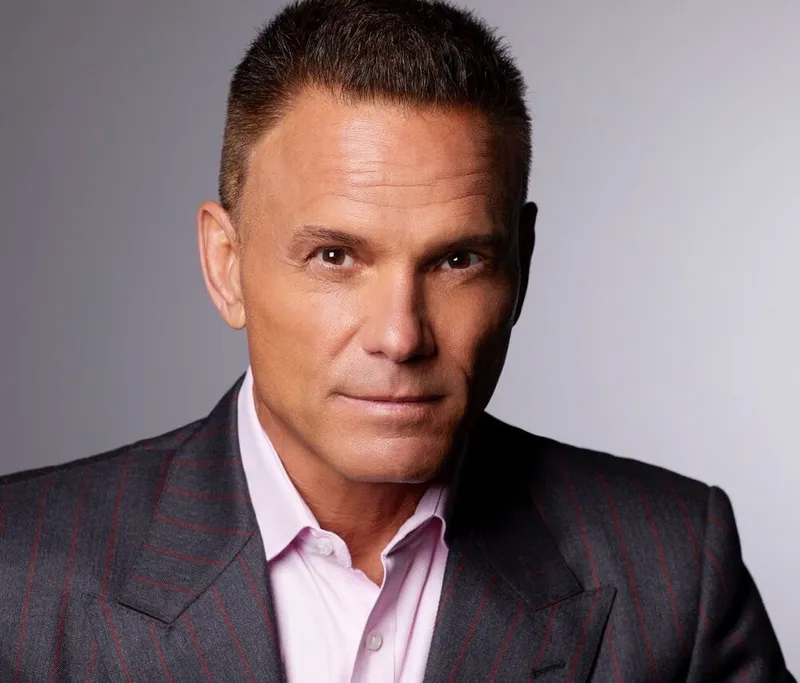Shark Tank’s Kevin Harrington reveals why he’s focusing on the India opportunity
In a one-on-one interaction with YourStory, original ‘shark’ Kevin Harrington speaks about how he tested waters in India 25 years ago, why he decided not to proceed, and what has brought him back to the country.
American entrepreneur and celebrity investor Kevin Harrington has announced his very first investment in India in The New Shop, run and owned by Delhi-based ProductX Ventures.

Kevin Harrington
The “original shark” from entrepreneurial-based reality TV show Shark Tank, Kevin Harrington, who is the also the founder of As Seen on TV, and claims to be the “inventor of the infomercial”, speaks to YourStory about his first foray into India 25 years ago, his latest (and first in India) investment, and his future plans for India.
Edited excerpts of the interview:
YourStory: You have been an entrepreneur for 40 years now. When and how did India catch your attention, as an entrepreneur and investor?
Kevin Harrington: I started the product business back in the early 80s. We would invest money in a product, manufacturing, inventory, etc. Then, we had to find celebrities to endorse the products, pay them, and produce a TV commercial. These were major investments for every single product, each of which had a bell-shaped curve of success. The products would ultimately die, just like a movie that comes out, meets success, and eventually goes out of the theatre and is finished.
But, where does the movie go from there? It goes international! In the early 90s, we had a library of about 100+ products, all of them with a bell-shaped curve. But I thought of the movies, and how they then go to Europe, Latin America, Asia, etc. I started thinking about the global marketplace in the early 90s. My first step was going to England because it was easier owing to the same language. And it was wildly successful. We opened our London office in 1991; we did north of $15 million in sales in the English market in our first year. Then we went into Germany, followed by other countries in Europe, and Latin America. This was till 1993. In 1994, we launched our products in Japan, and we did sale of $80 million in the first year. That’s when we realised that this library was valuable, and that we needed to take it everywhere. That's when we started exploring India.
I came here in 1994 thinking that it would be a great market as there are billion-plus people. But, after a year of operations, we pulled out due to a lot of challenges.
Getting TV time was not a challenge; it was getting the products out to market. We found that in many parts of the world, be it Germany, Japan, or Spain, marketplaces were fairly sophisticated with inbound phone centres, fulfillment centres, banking processes, etc. In India, we were able to get our products on television, but the credit card penetration, fulfillment centres, customer service, and the phone ordering were a problem. We were actually using people on bicycles to deliver a product. So, it was a very difficult business to run and we left in a year. We were too early.
YS: You almost waited 25 years to come back here. What reignited your interest?
KH: To be honest, we were busy with everything else we were doing. It isn't until now, with The New Shop, that we actually decided to come back. Why? So, back in 80s, I decided that I want to go direct to the consumer, and wanted my own products where I could control distribution, B2C, direct to the consumer. So, when The New Shop came to me and said they had a new concept of shopping and it was direct to the consumer, I found it interesting.
I don't want to invest in retail stores, or big infrastructure. But if I can have a place to sell products that is where people work and live right, it could be very powerful. The bottom line is that I love the business model and it is in line with my strategy of “direct to the consumer”.
YS: Do you plan to invest in more startups here?
KH: I take it one step at a time, and so far the only venture that I have here is with The New Shop. So, we will look at having it (The New Shop) as a possible entity that can partner with the Indian entrepreneurial ecosystem because our goal is to get to 10,000 stores in five years. At the end of the day we will be able to partner with entrepreneurs here to give them access to our footprint.
YS: Apart from FMCG, which is the focus of The New Shop, what are your other interest areas for India?
KH: I have been a product entrepreneur for 35 years; I love products. Just talking entrepreneurially, maybe some service businesses could be incorporated into The New Shop, leading to opportunities for additional revenue streams.
I always like to keep my eyes open for opportunities. I believe that India has a great number of tech startups. Now that I am spending more time here, we will be looking at tuning into the world of tech and the opportunities that exist here.
Also read: Konnichiwa India: Japanese startups look to build stronger connect with the Indian ecosystem







